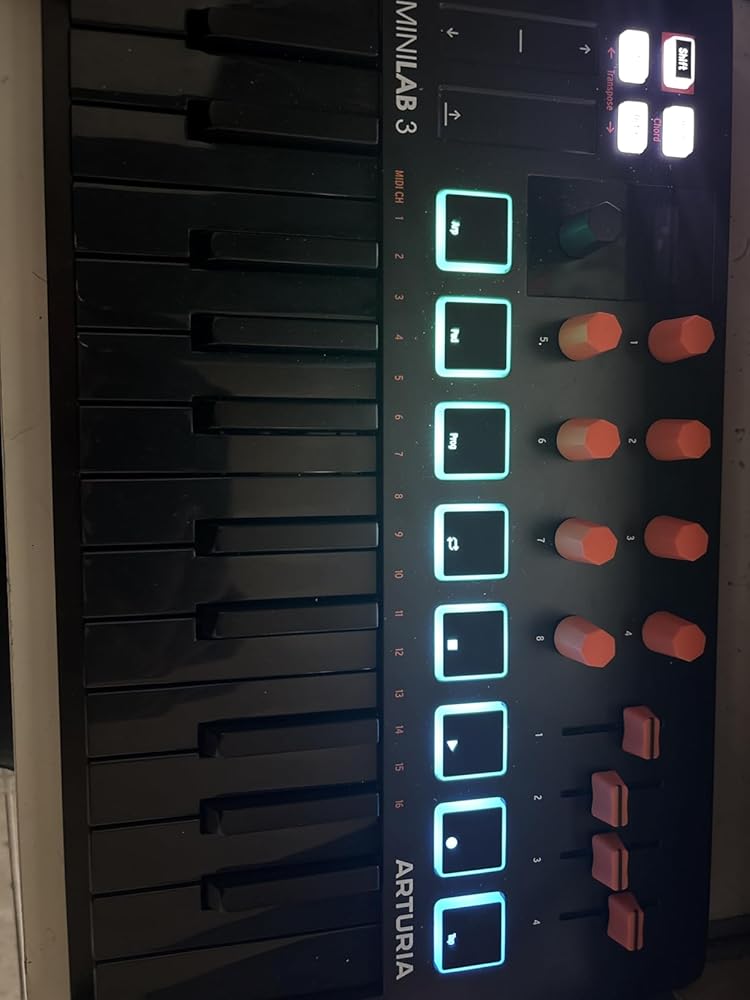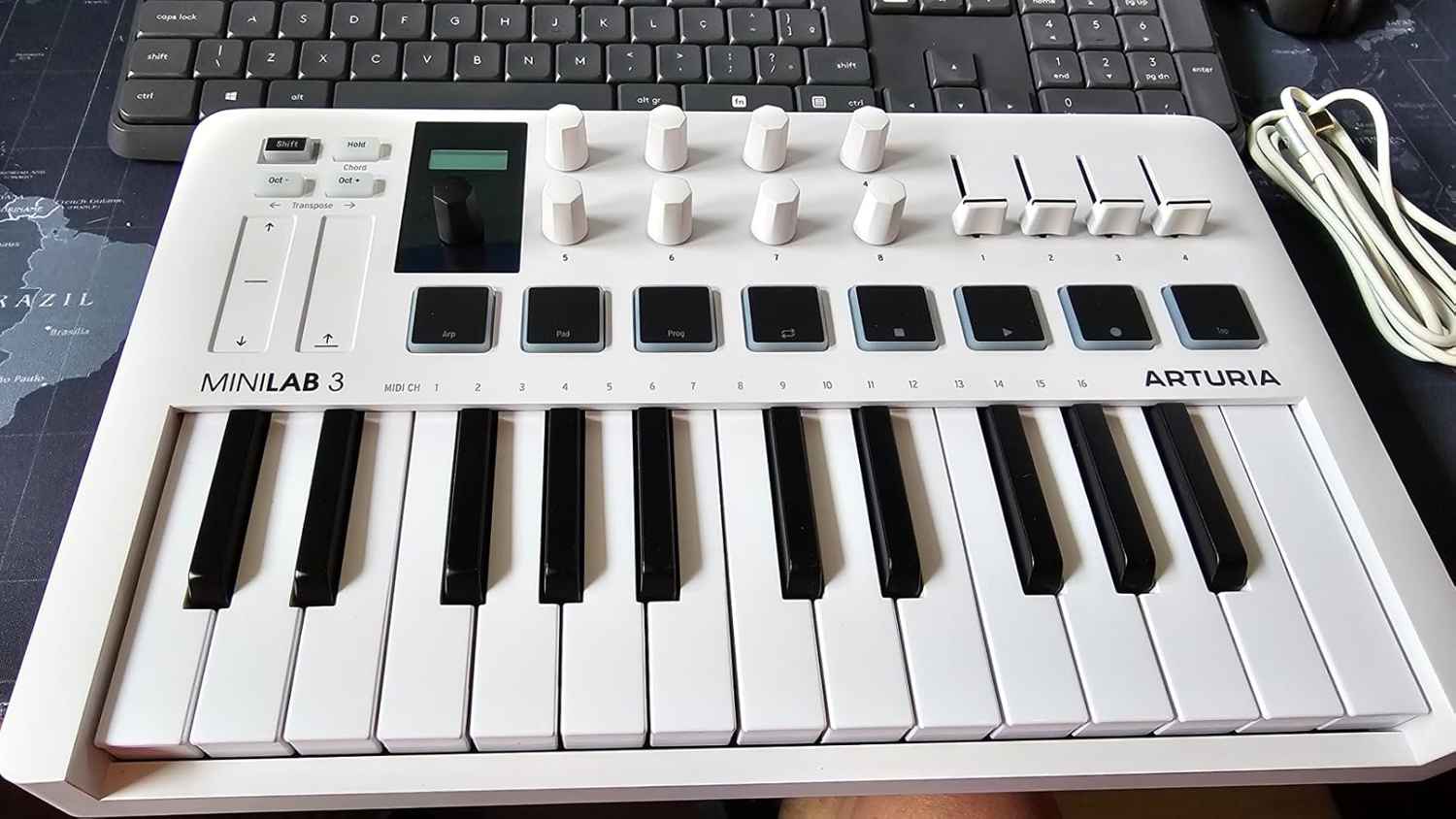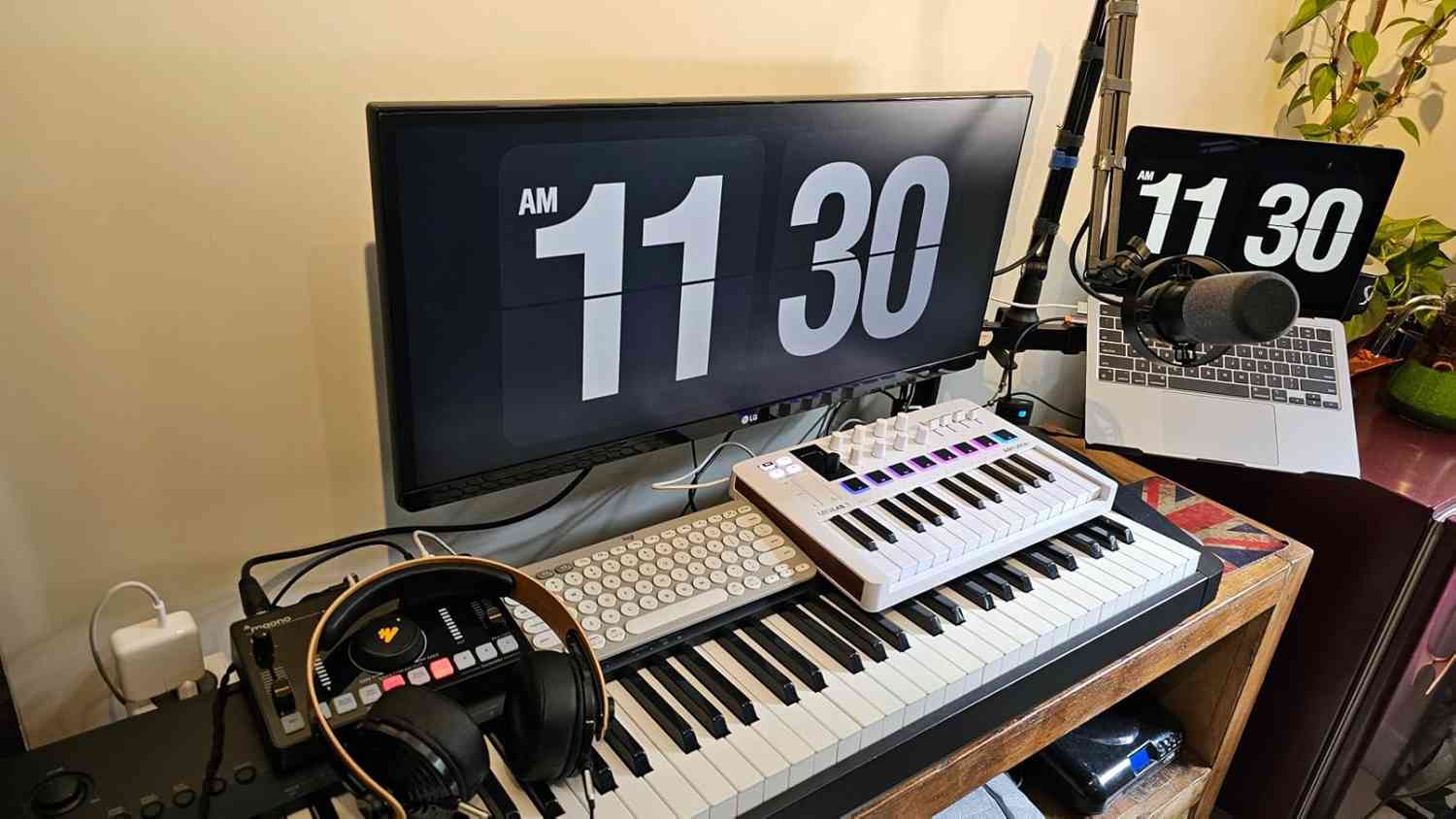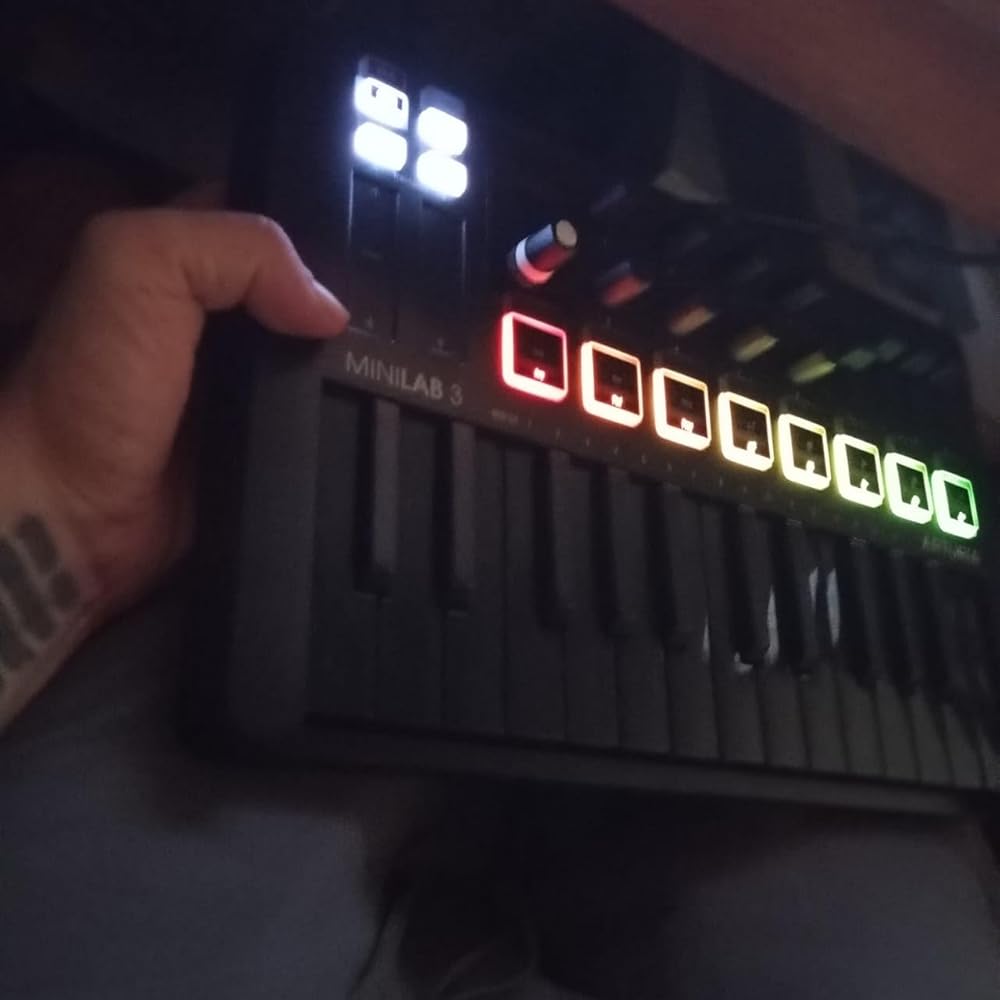



First off, the MiniLab 3 is a beast in a compact form. The moment I unboxed it, I was struck by its sleek design and sturdy build. It feels premium, not like some flimsy toy. The white finish gives it a classy look that stands out in my studio setup.
The keys are where this controller truly shines. They're semi-weighted and velocity-sensitive, offering a surprisingly realistic feel for such a compact keyboard. Playing melodies or chords feels natural, and the response is spot-on. Compared to other mini controllers I've tried, these keys are in a league of their own.
The pads are decent—not as responsive as Akai's legendary pads, but they get the job done. The RGB backlighting is a nice touch, especially in low-light studio sessions. I found them great for triggering drum samples or quick loops.
Integration with DAWs is seamless. I use Ableton Live, and the MiniLab 3 mapped perfectly right out of the box. The 8 encoders and 4 faders are super handy for tweaking parameters on the fly. It's so intuitive that I often forget I'm not using my mouse.
The included software bundle is insane value—Analog Lab V alone is worth it, with thousands of presets at your fingertips. Setting up all the accounts was a bit tedious, but once done, it's a treasure trove of sounds.
Portability? Check. It's lightweight enough to throw in my backpack for gigs or jam sessions. USB-C connectivity means no more hunting for outdated cables—finally!
If you're torn between this and an Akai MPK Mini, go with the MiniLab 3. Better keys, better build, and way more control options. After six months of daily use, it's still holding up like new.

